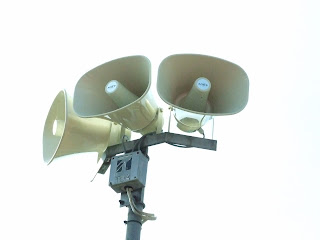As hard as it is to imagine, the holidays, beginning with Halloween next month, are fast approaching. Along with the whirl of activities come a change of routine and schedule, which may well mean that you have little, if any, time to write. This is totally understandable, considering there are family and friend commitments. Time-wise, you may be on a totally different schedule or even in or out of town.
I try to squeeze in some writing during the holidays as well as I can, while ensuring I'm still completely present for family time. It's often just fifteen minutes. I've found, though, that you can get a lot done in that amount of time. In fact, setting a timer and writing for 15 minutes is one of my favorite ways to work, regardless of how busy life is. That's because it's the perfect amount of time for me to really focus on my writing without getting distracted.
If you're dealing with fifteen-minute writing sessions, here are my tips for making the most of them:
Note where you left off the day before: At the end of your writing session, jot down a couple of notes so you can jump into where you left off the following day. This keeps you from re-reading what you wrote last time (which not only slows you down, but can put you in editing mode instead of creative mode).
Think about your story for a second before your session starts: On your way over to your laptop and while you’re booting up, think about where you want the session to go. What are you wanting to accomplish? Is this a scene with dialogue between characters? Is this going to be a transition scene? Are you developing the setting or adding description during the session?
Mute notifications: If you don't mute notifications, that 15-minute period is going to get hijacked by your phone. Minimizing distractions is the best way to focus during your short session.
Try to be flexible: If you're usually a morning writer, but your houseguests are taking naps after lunch, try writing in the afternoon. Or try to write for a few minutes before turning in at the end of the day. See if you can squeeze in a writing session in any sort of dead time . . . waiting for the kids to come out of basketball practice, waiting for your car to get its oil change, etc.
Make lists instead of doing traditional writing: Maybe you don’t have a full fifteen minutes. Maybe you really only have five minutes. I’ve found that during my busiest days, making lists can help me make progress on my manuscript. Basically, you advance your story by thinking up 5 ways to describe your main character, 5 ways the character could grow, 10 possible subplots, 5 ways to describe the setting, etc.
Or maybe you’re in the revision process with your story. You could think up 5 ways to get out of the plot hole you’ve discovered. Or 5 possible endings for your book, if you’re not happy with the one you’ve penned.
Something else I've found . . . these quick writing sessions work best if you can write each day for 5-15 minutes. It helps when your head is still in the story world.
Do you write in shorter writing sessions, or do you prefer longer ones? What does your holiday writing schedule usually look like?
Elizabeth is the bestselling cozy mystery author of the Southern Quilting mysteries, the Myrtle Clover Cozy Mysteries, the Village Library Mysteries, and Memphis Barbeque mysteries for Penguin Random House, Midnight Ink, and independently. Her latest book is Quilt Complex, which releases tomorrow. Follow her on Twitter where she shares writing links @elizabethscraig or at her blog where she offers tips for writers: http://elizabethspanncraig.com/blog/ . She lives in Western North Carolina with her husband and is the mother of two.


%20-%20Copy.jpg)


